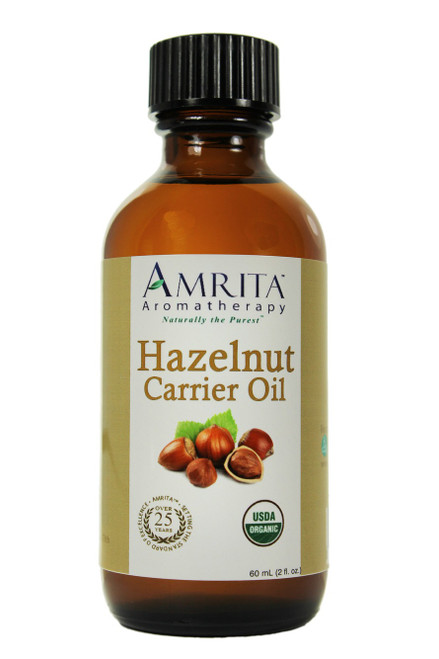Essential Oils For Asthma
-
Hazelnut Carrier Oil
$13.36 -
Hazelnut Organic Carrier Oil
$25.00 -
-
For the acute care needed to get any asthma attack under control, traditionally people apply Roman Chamomile Essential Oil.* Dr. Streicher suggests making a blend of 3-5% dilution in a quickly penetrating carrier oil like Jojoba or Hazelnut (3-5% dilution means 15-25 drops of essential oil to a tablespoon of base oil); then apply this blend on the chest and back.*
For long term management, traditionally people diffuse Allergy Ease Synergy.* You may like to add some more Ammi Visnaga to it, as this is the most powerful anti-asthma essential oil.* But be careful not to overdo this by leaving the nebulizer running.* After regular use, this may often avoid an attack from happening.*
Others have also found that diffusing a mixture of Ammi Visnaga and Eucalyptus Radiata in a 1:4 ratio (1 part or 1-2 drops of Ammi Visnaga with 4 parts or 4-8 drops of Eucalyptus Radiata) and using it for 20 minutes twice a day also may help to temporarily relieve asthma symptoms.* Some have found that this combination of oils clears their congestion and relaxes their breathing.* Ammi visnaga is expensive, but when you combine it with Eucalyptus Radiata, it's more affordable, and the two oils work together very well.
This video is by the founder of Amrita Aromatherapy and master aromatherapist Christoph Streicher, Ph.D.
Learn more about aromatherapy or see our how to use essential oil videos.
Others have found that strengthening the respiratory system can help combat against symptoms of asthmatic attacks.* Amrita’s experts would highly recommend Respiratory Health Tri-Essence® Power Blend and Breathe Easy Synergy Blend.
You may also find this blog post about asthma and children useful. For details on the other products mentioned in the video relating to bugs and so on, see essential oils for bugs and bites.
*These statements made on this page have not been evaluated by the U.S. Food and Drug Administration (FDA). They are not intended to diagnose, cure, or prevent any disease. If a condition persists, please contact your physician or healthcare provider. The information provided is not a substitute for a face-to-face consultation with a healthcare provider, and should not be construed as medical advice.
Asthma is derived from the Greek word for "panting." Asthma is a chronic inflammatory disease of the airways.* It is also called bronchial asthma or reactive airway disease. The symptoms reoccur and vary. They include wheezing, coughing, tightness of the chest, and shortness of breath.* Technically, these symptoms are described as reversible airflow obstruction and bronchospasm.* It is associated with inflammation of the bronchial tubes and an increased production of sticky secretions inside them.* The number of people contracting this disease is increasing with over 8% of the U.S. population suffers from asthma…and sadly, asthma attacks can be fatal.*
The exact cause is unknown. The triggers for this chronic inflammatory disease of the airways vary from person to person.* But when airways come into contact with this trigger, they become inflamed, narrow, and fill with mucus.*
There is some evidence for genetic influences and environmental factors.* Some other common triggers include dust mites, molds, pollen, pets, cockroaches, household irritants and secondhand tobacco smoke.* For some people, allergies play a role while for others exercise can induce an asthma attack.* See our page about essential oils and allergies for more details on this related condition.
*These statements made on this page have not been evaluated by the U.S. Food and Drug Administration (FDA). They are not intended to diagnose, cure, or prevent any disease. If a condition persists, please contact your physician or healthcare provider. The information provided is not a substitute for a face-to-face consultation with a healthcare provider, and should not be construed as medical advice.
Treatment is geared toward preventing asthma attacks, and also dealing with the attacks when they happen.* They are generally steroids and anti-inflammatory drugs; this is not addressing the cause of the problem, but putting a “band-aid” over the underlying issues.*
The drugs for preventing asthma attacks are called "controller medications." They aim to reduce the inflammation of the airways so they are less likely to react to triggers.* The drugs for dealing with the attacks when they happen are called "quick-relief or rescue medications." They aim to relax the muscles around the airway.* These medications can be taken via inhalation, via a dry powder or a nebulizer (which changes it from a liquid to a mist), in a pill, or liquid form.* In severe asthmatic attack situations, they can also be given by injection.* Of course, as with all medications, there are side effects.*
There have been research studies on using acupuncture for asthma. But only some showed a reduction in medication use and improvements in symptoms and quality of life.* Some research found a trend toward improvement in symptoms with breathing techniques.*
There are Ayurvedic herbs and approaches to asthma. As with most diseases, Ayurveda considers asthma as being initially caused by poor digestion and poor elimination which leads to a buildup of toxins and impurities in lung and airway tissues.* It also considers that stress worsens the condition.* Of course, essential oils traditionally have also been used for asthma.* For more information, see the Useful Essential Oils tab.
*These statements made on this page have not been evaluated by the U.S. Food and Drug Administration (FDA). They are not intended to diagnose, cure, or prevent any disease. If a condition persists, please contact your physician or healthcare provider. The information provided is not a substitute for a face-to-face consultation with a healthcare provider, and should not be construed as medical advice.
Disclaimer: The statements made on this website have not been evaluated by the FDA (U.S. Food & Drug Administration). Our products are not intended to diagnose, cure, or prevent any disease. If a condition persists, please contact your physician or health care provider.




